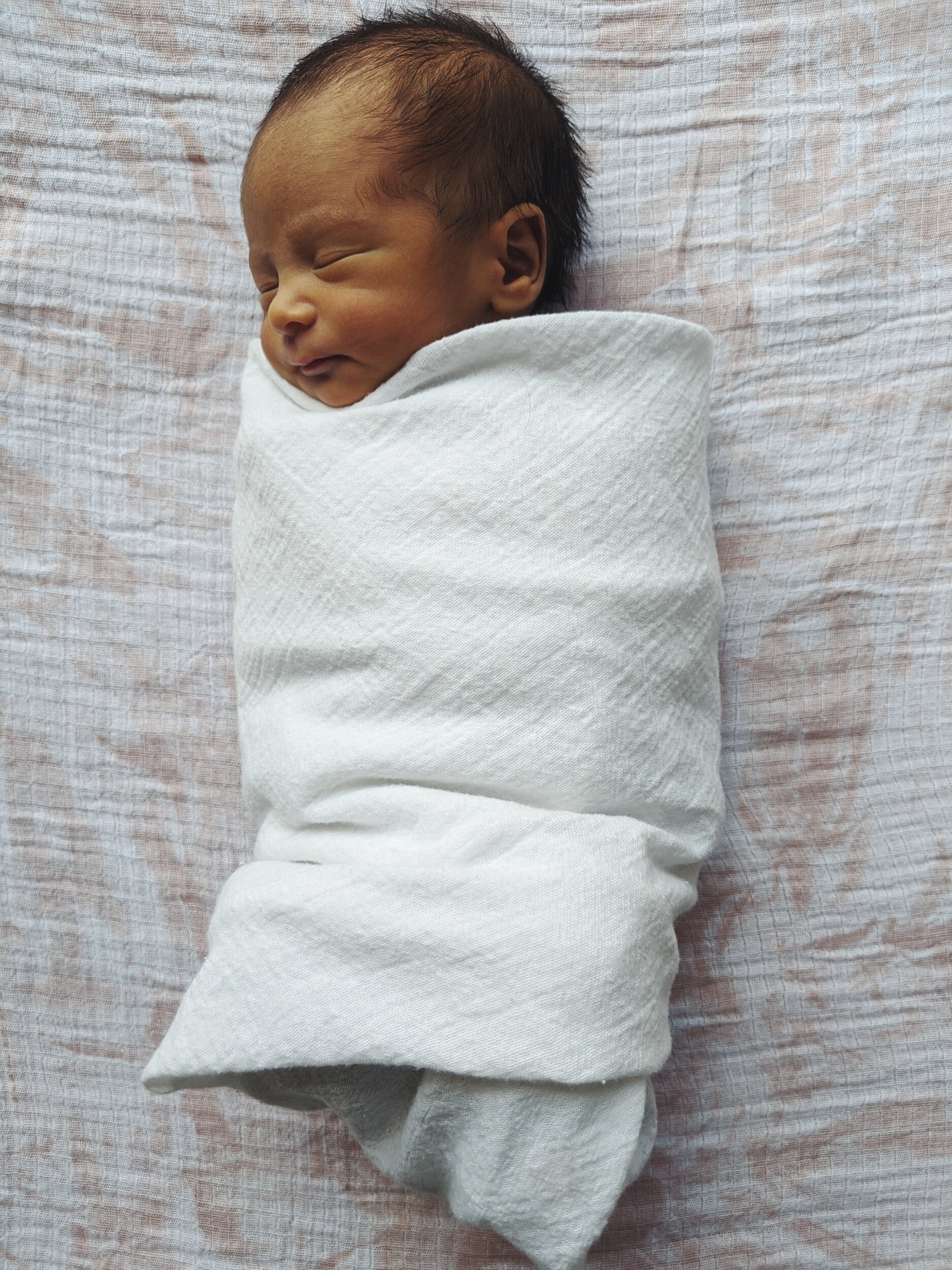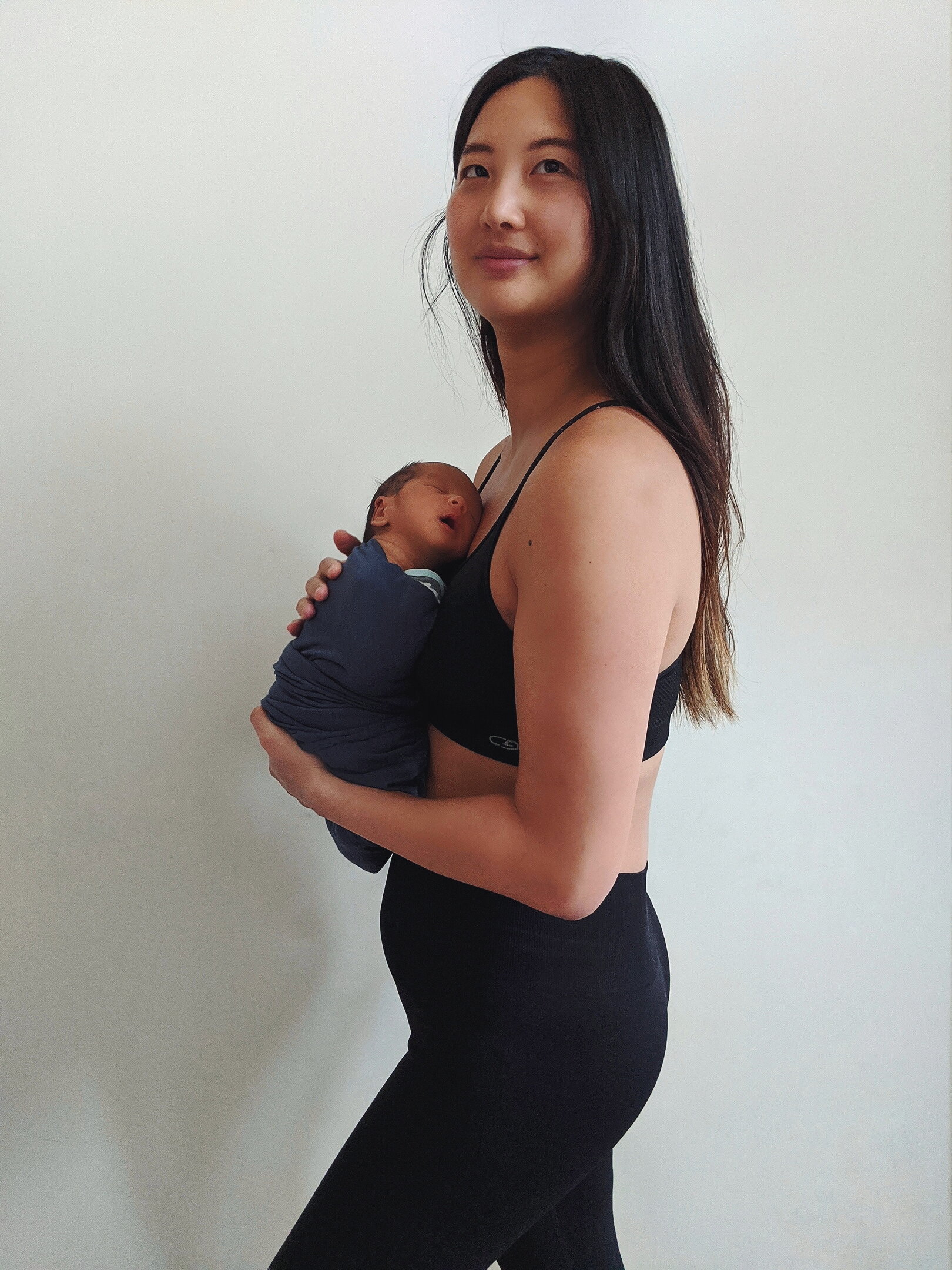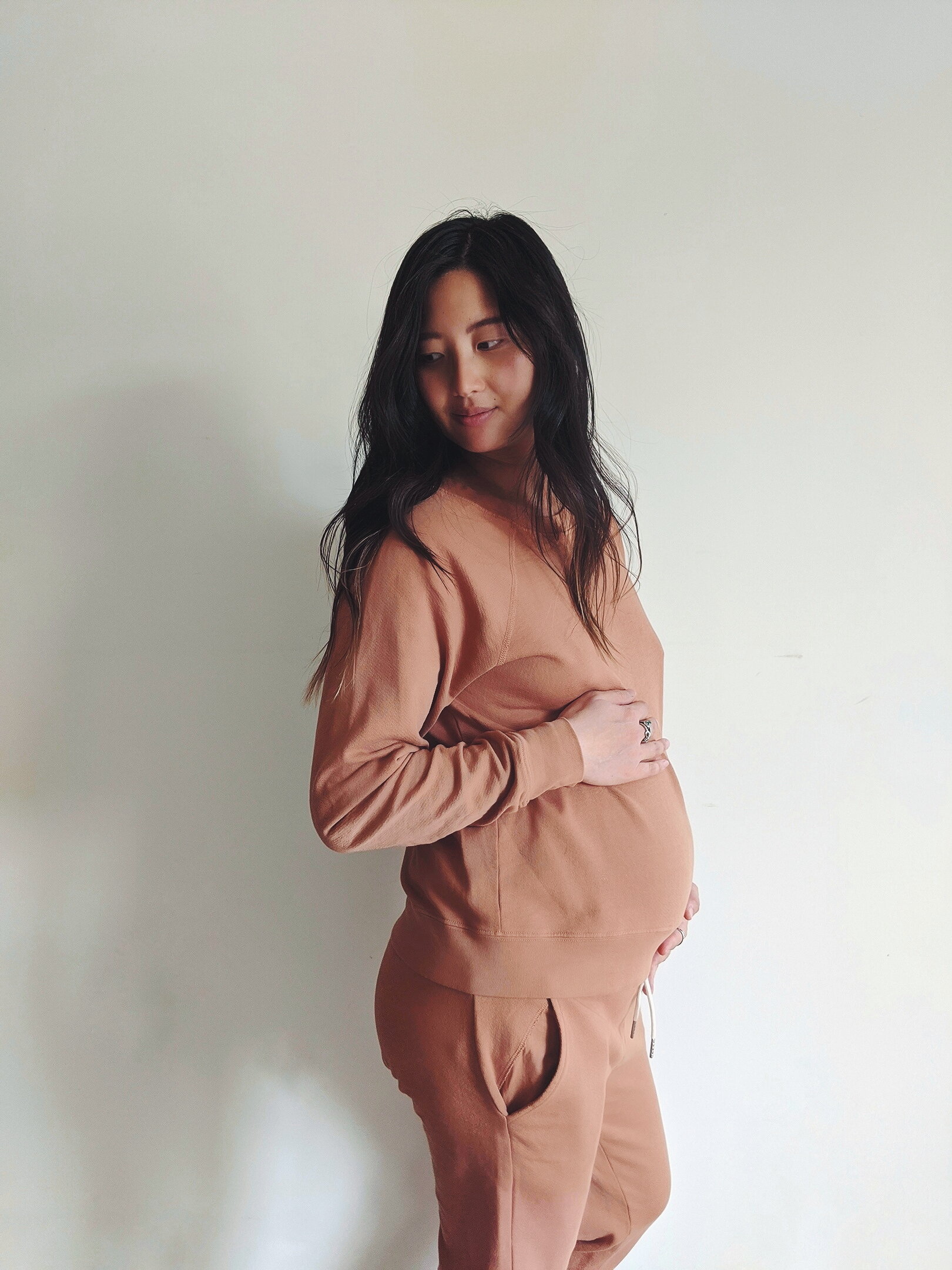#1. Babies cry. A lot.
I wish someone had told me just how much babies cry, that it’s their only form of communication, that it’s a good way for them to exercise their lungs. I wish someone had told me that if I’m in the middle of something, it’s totally fine to let him cry for five minutes before going to him. Especially with him being my firstborn, I ran to him every time he cried the minute he started crying. I think it took a good couple of months before I got used to the sound and felt comfortable letting him cry it out (for a reasonable amount of time).
#2. Zippers over buttons.
Buttoning up a screaming baby at 3 am is not fun. Outfits with snaps down the front might be cute, but zippers are so much easier and I was thanking them in the middle of the night.
#3. Breastfeeding is a strange experience.
I had no idea that breastfeeding could produce period-like cramps. I had heard that breastfeeding could make me super tired, thirsty, and hungry, but I didn’t realize just how much. I’m still amazed that just looking at him or hearing him cry can cause me to leak. But most of all, I wish someone had told me earlier that it’s normal to feel emotionally and mentally out-of-sorts during the breastfeeding/pumping phase.
#4. “Mommy thumb” is a thing.
Apparently there is a right way to hold a baby. For four months, I held him for most of the day with my thumb open on my non-dominant hand. One night when I went to pick him up, I felt a snap and then searing pain along the base of my thumb. I could barely lift him. That’s when I googled “mom wrist pain” and learned about De Quervain’s Syndrome. It took a good week of resting my thumb, wearing a thumb splint at night, and letting Steve do some of the heavy lifting (literally) before the pain subsided. I found these articles particularly helpful about learning the proper way to hold a baby: Rehab for a Better Life and a Kaiser Permanente article.
#5. Formula is okay.
I wish I had known that feeding a baby formula is likely going to happen at some point, whether it’s after my colostrum has dried up during his first few days or when I’m trying to wean him off of breast milk months later. I think knowing that would have made me feel less guilty about feeding him formula. Because I don’t produce enough breast milk for him, we have been feeding him about a bottle of formula a night since he was born. I used to feel like I had failed as a mother in some way, but now I realize that formula is bound to happen.
#6. Pacifiers are okay.
I so desperately wanted to avoid my baby putting anything plastic or synthetic in his mouth, which meant I didn’t like the idea of using pacifiers. During his first couple weeks, it felt like I was nursing him for an hour and a half at a time. Nipples sore, my mental health frayed, my arms and shoulders tired - I wondered how mothers could enjoy breastfeeding so much. Then, I realized he was mostly comfort nursing and a family friend told me, “don’t be a hero; give him a pacifier”. We used silicone ones for a while before I discovered rubber ones. Regardless, pacifiers have saved my nipples.
#7. Babies grow really quickly in the first year.
Every baby grows at a different rate, but I was shocked at how quickly he grew. In a flash, he outgrew his preemie clothes, then his newborn ones, then we moved on to the 0-3 month size. I feel like we only spent two weeks in 0-3 month clothes before we put him in 6-9 month sizes. I bought four new sleepers for him when he was a few weeks old because of how rapidly he was growing and before my sister could drop off her son’s hand-me-downs. Never again. He wore them only a handful of times before he outgrew them.
#8. Babies need a lot of stuff.
At one point in the bedroom we had a sound machine, a humidifier, and a fan running at night. In the kitchen, I have a section for washing and drying 50 different pump parts, pacifiers, and baby bottles. In his playroom, we have a bassinet, a Pack n’ Play, a changing table, and a dresser full of baby clothes. As someone who is trying to be a minimalist, I’m shocked and overwhelmed by the sheer amount of stuff we now have in our house.
#9. Some baby stuff isn’t intuitive to use.
For two and a half months, nearly every time we fed him from a bottle, the bottle would leak milk all over him. Sleep-deprived and cranky, we would get so angry at the bottle. It took us an embarrassing amount of time to figure out how to correctly put the cap on. I wish I had taken the time to read instructions on bottles, breast pumps, and swaddles before the baby arrived.
#10. A bassinet isn’t necessary.
Because I had seen friends and family use them, I assumed I needed a bassinet too. I wish I had known that I could skip the bassinet and have the baby sleep in a crib right from the start.
my fave baby products so far
Solly Baby swaddles
These are the only swaddles I’ll ever need. We have several cotton muslin swaddles, which are fine, but we absolutely love the Solly Baby ones. They’re bigger, stretchier, softer, and harder for our baby to kick out of when he’s wrapped up. And, they’re shipped in plastic-free packaging.
Esembly reusable diapers (inners)
100% organic cotton, easy to put on, and easy to wash, Esembly diapers helped ease me into sustainable diapering.
Marley Monsters reusable wipes
These soft, cloth wipes are made from 100% cotton and ship plastic-free. We use them for wiping butts and spit-ups. We even soak them in water and freeze them for when he’s teething. About 40 wipes lasts me a few days.
Ecopiggy natural rubber pacifiers
If our baby is going to put something in his mouth, I try really hard to make sure it’s made out of a natural material like rubber, wooden, or cotton. It’s impossible to do when it comes to bottles and some toys, but I try. I love these 100% natural rubber pacifiers that I get from EarthHero.







